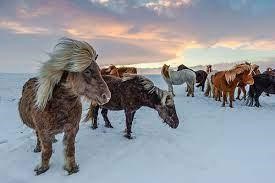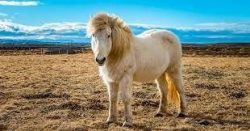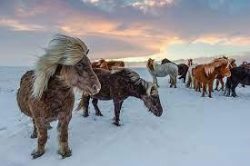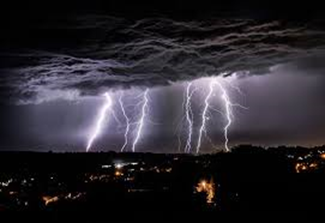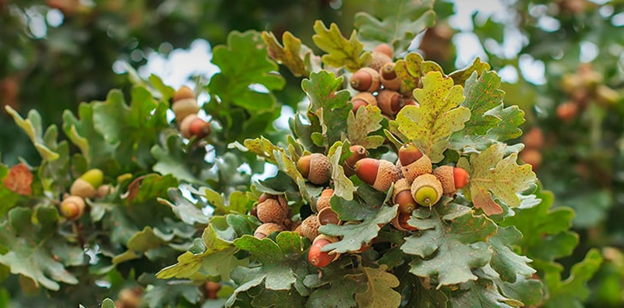There are many different types of horse all over the world. Most of them have been selectively bred for centuries by humans in order to ensure that they are right for the type of work that they do. For example, the shire horse is a heavy horse, which is bred for hard work such as pulling farm machinery, and race horses of course are chosen for their speed. Humans have loved horses for a long time, and as well as being useful, they are also an inspiration to artists creating works of art like this horse sculpture, as well as for helping people with their mental wellbeing.
Some breeds of horses however, have a much longer history than others, and one of these breeds of horse, that has a history going back over a thousand years – the Icelandic horse. These beautiful horses are beloved by many people in Iceland, and their ancestry goes back such a long way there is still a lot of mystery surrounding some parts of it.
It is believed that these horses first arrived in Iceland sometime around 860 AD. Arriving with the Vikings onboard ships, these horses are sturdy and ideally suited to the colder northern conditions in Iceland. In the winter, they have a thick and heavy coat, which then sheds in the summer. They can withstand low temperatures, as well as the icy winds, and the difficult terrain in Iceland is not a problem for them. Stocky and strong, these horses are a great example of how animals adapt to their environment over many generations.
This breed of horse partly came about due to the fact that in 982AD it was forbidden for any other breed of horse to enter the country, and as Iceland is an island nation, there has been no genetic diversity, which has made this a very distinctive breed of horse. Icelandic horses can be a variety of colours, in fact there are well over forty colours and patterns listed that can be seen in this breed. These horses typically robust and long lived, living on average around 40 years! As well as their extraordinarily long lives, they are also celebrated for their characters – they are not easily worried or anxious horses and have a natural curiosity and are very friendly to humans.

